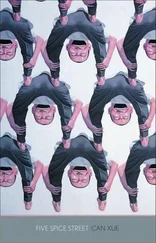10. REAGAN’S DIFFICULTIES
“A day without Ida is like a nightmare and like a liberation.” This was what Reagan thought. He stood in the shallow water of the bay, watching the gray-green seawater, experiencing the enchantment of the sea’s fullness and power. The year before, was it merely because she couldn’t shed her cumbersome water-logged garments that a girl had drowned? He climbed to the shore while speculating on this question.
Fifty-year-old Reagan had achieved great success in his business. His rubber tree plantation made a continuous profit, which allowed him to buy up the large farms at its periphery and convert them into rubber tree plantations. Over the past few years, Reagan had gradually withdrawn from strenuous daily tasks and handed over work matters to a capable manager. The manager, Jin Xia, whose nationality was unknown, was an excellent administrator. He ran all Reagan’s business affairs with clarity, without noise or bother, and, what was even more important, as regards the farm’s expansion his every move was with an eye to the future. One night Reagan dreamt that this Eastern man had mastered the secret of turning stones into gold. He held a rod with a head inlaid with gems, and when he pointed to the piece of land where he stood, that land became Reagan’s. Reagan stared for a long time into his narrow, cunning eyes. What he saw in them was not desire itself, but rather a changing form of absence.
“Jin Xia, do you still think Ida will come back?” Reagan was sitting by the sea when he asked this.
“She hasn’t really left. You should know that it’s only a question of perspective.”
Jin Xia’s long, thin body was like a shadow rising from the sea. Reagan always needed to study his speech before he could understand it, and had first taken a liking to him because of this. Jin Xia and his family lived in an old house halfway up a mountain. It was the residence Jin Xia had chosen. He and his wife and their two sons always came and went alone. They didn’t establish close relationships with the workers. At times the loneliness in the bones of this family even made Reagan afraid. He worried that they had thoughts of conspiring to undermine him. But later he would reprove himself for these misgivings. In fact, Jin Xia was his only confidant on the farm. He had poured out to him all of what weighed on his mind. At such times, Jin Xia smoked his cigarettes and seldom interrupted. Reagan wasn’t sure whether he wanted to listen, but he certainly took it all in. For example, just now Reagan had mentioned Ida, and Jin Xia had produced a singular opinion on the spot.
“Will your sons be going to school in the north this fall?” Reagan asked.
“Yes, but they hate to leave the farm!”
“Oh?”
“The two of them made up their minds never to leave the farm in the future.” Jin Xia expelled a mouthful of smoke, his tone growing boastful.
The mountain slope cut through the Chinese banana trees. Jin Xia’s gray wooden house was set underneath a large banyan tree. The banyan was like a fierce-faced guardian spirit. Its enormous roots hung in the air, giving it a domineering aspect. Reagan knew that termites had attacked the wooden house, and it was already an endangered building. But Jin Xia’s family didn’t mind. Perhaps they didn’t have long-term plans. Jin Xia’s wife had a name that was pleasant to hear, a name Reagan had difficulty pronouncing. At present she was putting quilts out to dry in the sun, probably because the house was too damp inside. She nodded haughtily toward Reagan, which served as a greeting.
“Living on the mountainside, you must know what happens on the farm as if you held it in the palm of your hand,” Reagan said, jokingly.
“The truth of the situation is that we have become outsiders.” Jin Xia struck his hand on the table uneasily. “Is it because our family lacks ambition?”
Reagan heard a muffled howl from the inner room and jumped up in surprise.
“You can’t be raising a wolf!” He felt his knees shaking.
“Yes,” Jin Xia said, his expression fleeting, “my sons are raising it. They felt that life here was too superficial, they wanted to do something more stimulating. And then they brought back this little wolf. Don’t be nervous, the wolf’s chained up tightly. Sometimes I’m anxious about their hobby, too. After all, I am their father. Luckily they’ll be going to the north soon. .”
He raised a palm toward the sky as if wanting to make some gesture, but he couldn’t make the gesture with his hand, which stayed awkwardly in the air. He looked more like a bachelor than a father.
Reagan turned to enter the inner room, but at the same time the two children rushed out, blocking him outside. He glanced in and saw the window covered by a black cloth. Nothing inside the room could be seen.
“Uncle, there’s nothing inside!” they said in unison.
The two boys were dressed shabbily and their faces were dirty, completely out of keeping for a well-off family. Reagan observed that they had cunning expressions in their eyes, like their father. At this moment the children’s mother entered. She whispered a few words to the children, who then both looked at Reagan with resentful eyes. It seemed they were interrogating him, asking why he’d come here to upset their lives.
Jin Xia still sat at the table as if nothing had happened.
“These children have no upbringing,” he said, although he seemed to be showing off, not apologizing.
When the wind blew, the wooden walls of the building creaked, zhi ya , so much so that one could sense the building tilting in the wind. Jin Xia shut his eyes slightly, intoxicated by this ominous sound. His short, dark wife seemed not to have heard anything.
The wolf didn’t make a sound, but the two children in the inner room began crying.
“They’ve injured the wolf, they are distressed, too, so they are crying. The little devils!” Jin Xia told Reagan.
But Reagan thought the sound of their crying had something not quite right inside it. Just how it wasn’t right, he couldn’t think of at the moment. Their cries weren’t the cries of small children. Rather, they seemed to contain deliberate and shrewd hinting, transmitting to someone some information difficult to speak aloud. To whom? Reagan didn’t understand the information the sound carried, and felt vexed. He looked at Jin Xia, at his happy, sated appearance. He was at the table arranging six small glasses into a plum flower shape. His long, thin, cigarette-stained fingers revealed his somber inner heart.
“Is your home always. . always as lively as this?” Reagan couldn’t think of a suitable description.
“Yes, I’m very sorry.”
But he still did not appear sorry. This false affectation infuriated Reagan. But was it really affectation? Or maybe he simply had no affectations? His wife was bringing the quilts back in from drying in the sun. She said she feared it would rain. She made trip after trip, mechanically, appearing calm. The two children’s strange crying couldn’t vex her at all.
“At first, I didn’t expect to set up house here. But once I saw this mountain, this banyan, this building, I didn’t want to leave. It’s hard to change your nature. There’s something I want to ask you about, Mr. Reagan. Can you tell me how much area the farm covers? For the past few days I’ve been completely confused by this question.”
“It’s the same for me, Jin Xia. Sometimes I feel our land is limitless; sometimes I also feel that not even the place where I’m standing exists. Should we continue buying land?”
When the sound of the wind stopped, Reagan and Jin Xia walked outside and stood under the banyan tree. As they looked down from the mountainside, their field of vision widened. Over the farm was a stretch of gleaming sunshine. Why had Jin Xia’s wife said it would rain? Reagan’s gaze swept over the rubber trees, arriving at the lake. The land made him feel stifled. He had the impulse to flee — maybe he could leave, as Ida had. Maybe Jin Xia lived here in order to draw back a ways from Reagan’s farm? But why did he so intently help Reagan enlarge his landholdings? Reagan could clearly remember how Jin Xia’s eyes had flashed with a greedy light when he was discussing business. He had no way of knowing the nature of Jin Xia’s delight. Judging from his spare lifestyle, he didn’t care about money. Turning around, Reagan looked back at the house, that enormous termite nest, and an ominous premonition sprang up in his heart. Was it possible he was encountering his life’s evil star? This taciturn man, whose nationality was unknown, and his strange family who lived in this wooden house built by a hunter many years ago, did they use the quiet pose of their lifestyle to influence him? Or was it to negate his existence? What was the meaning of the woman’s arrogance, coming as it did from the depths of her heart?
Читать дальше












